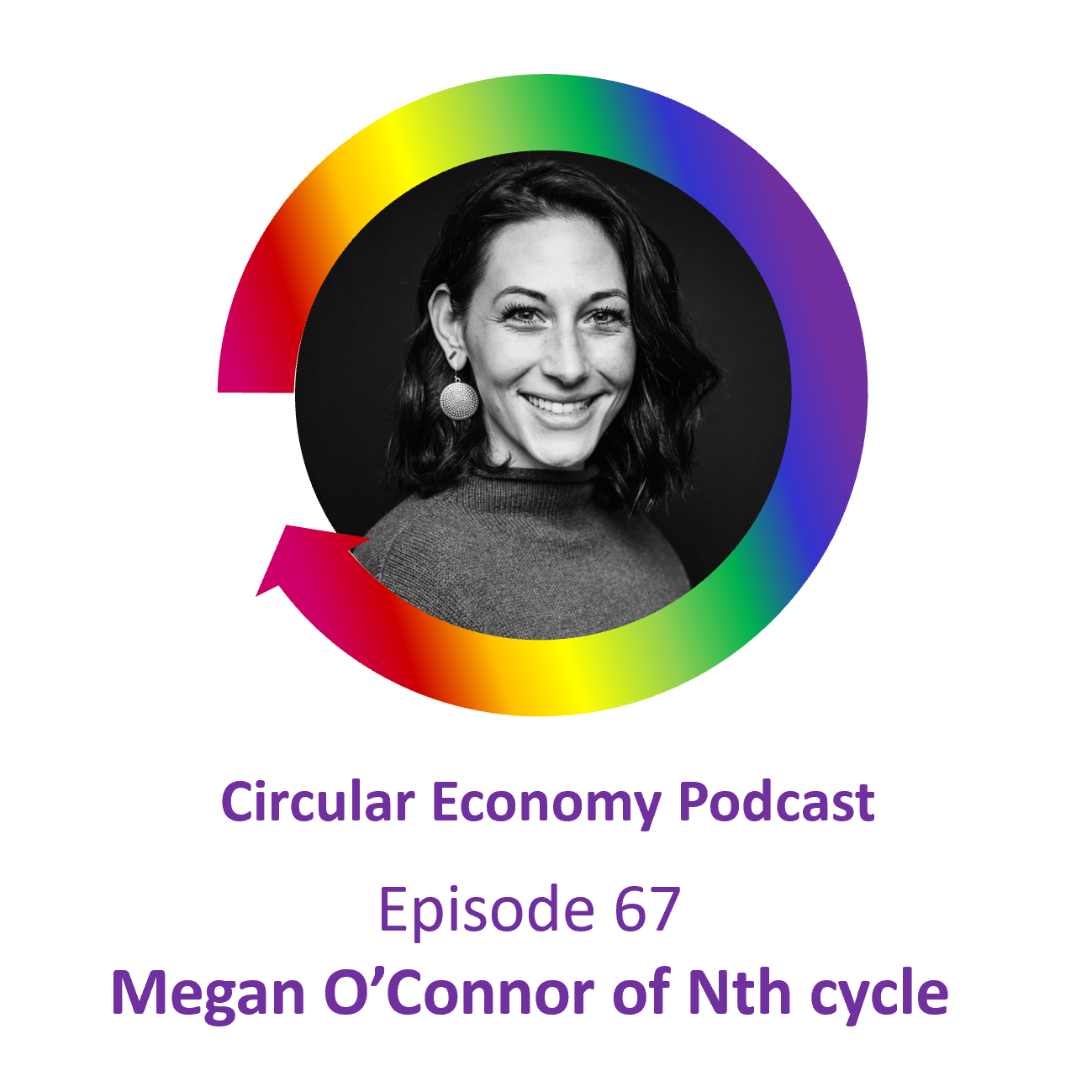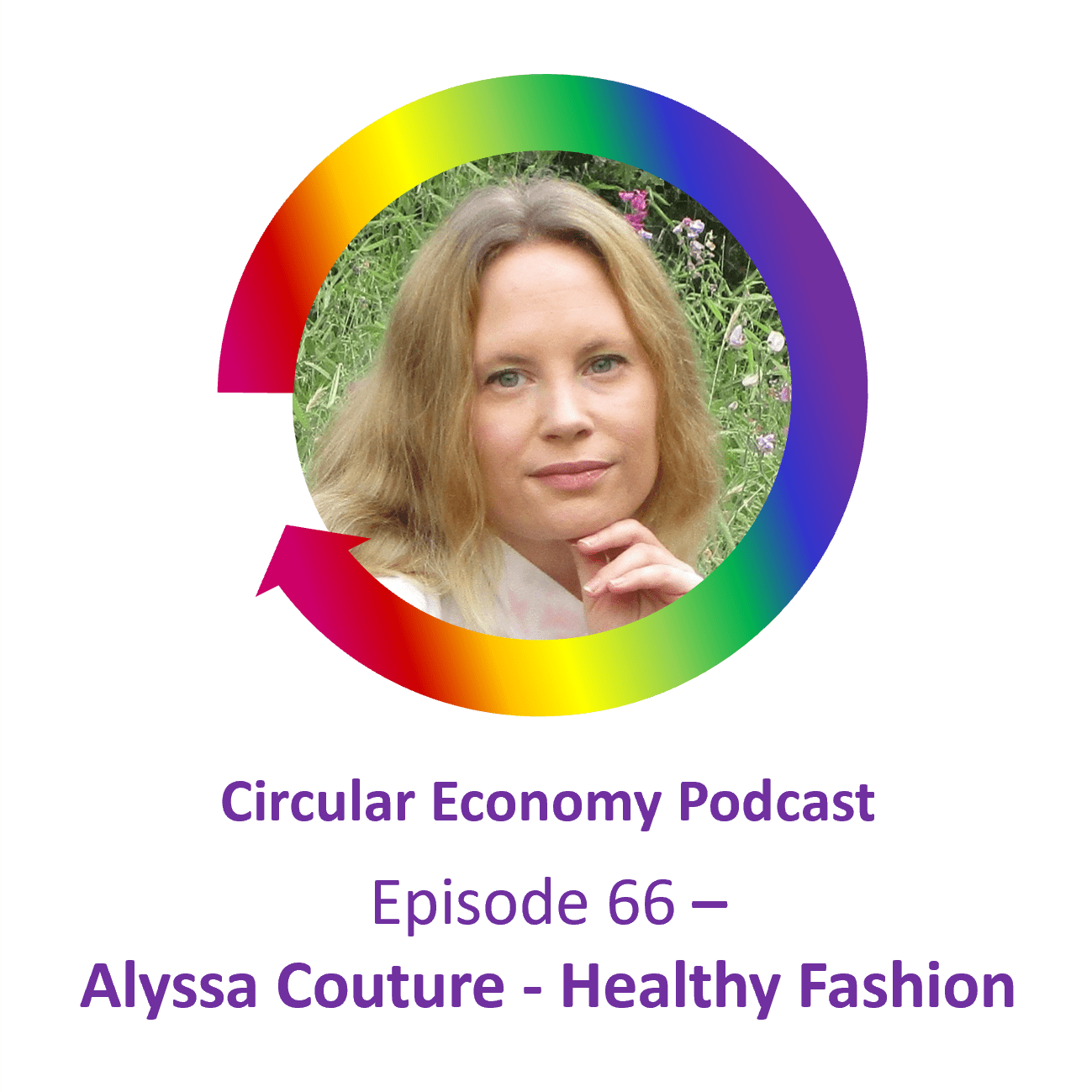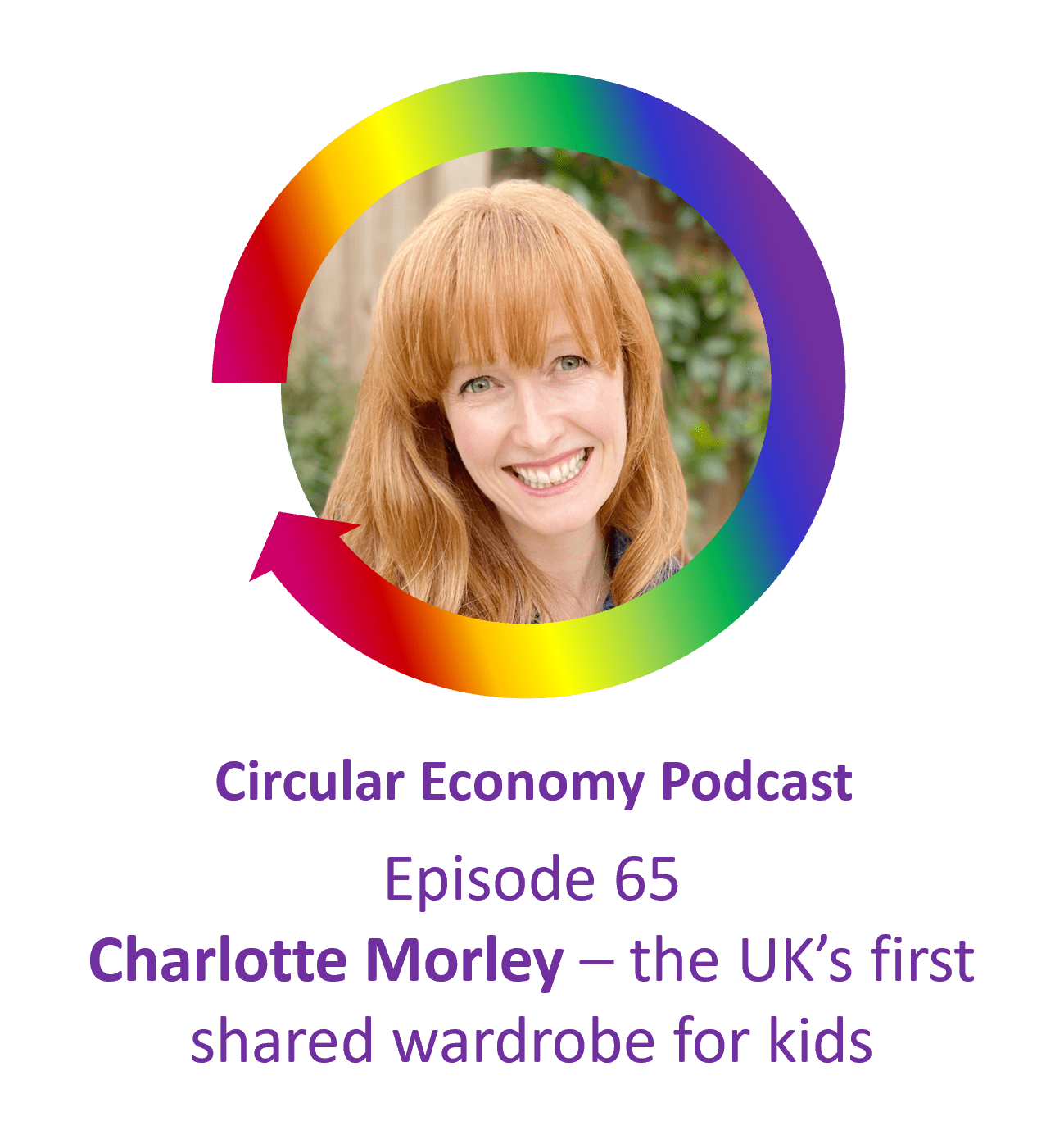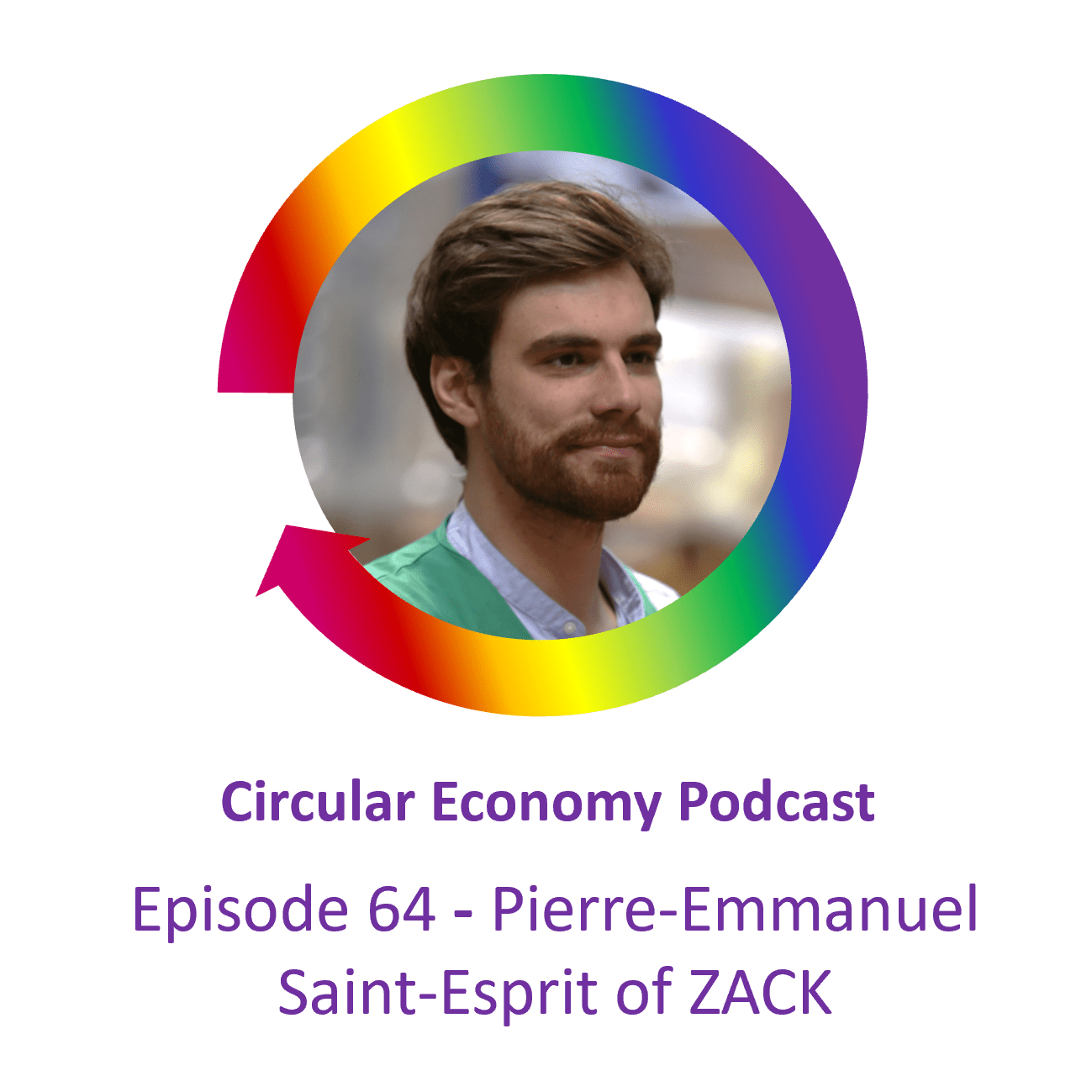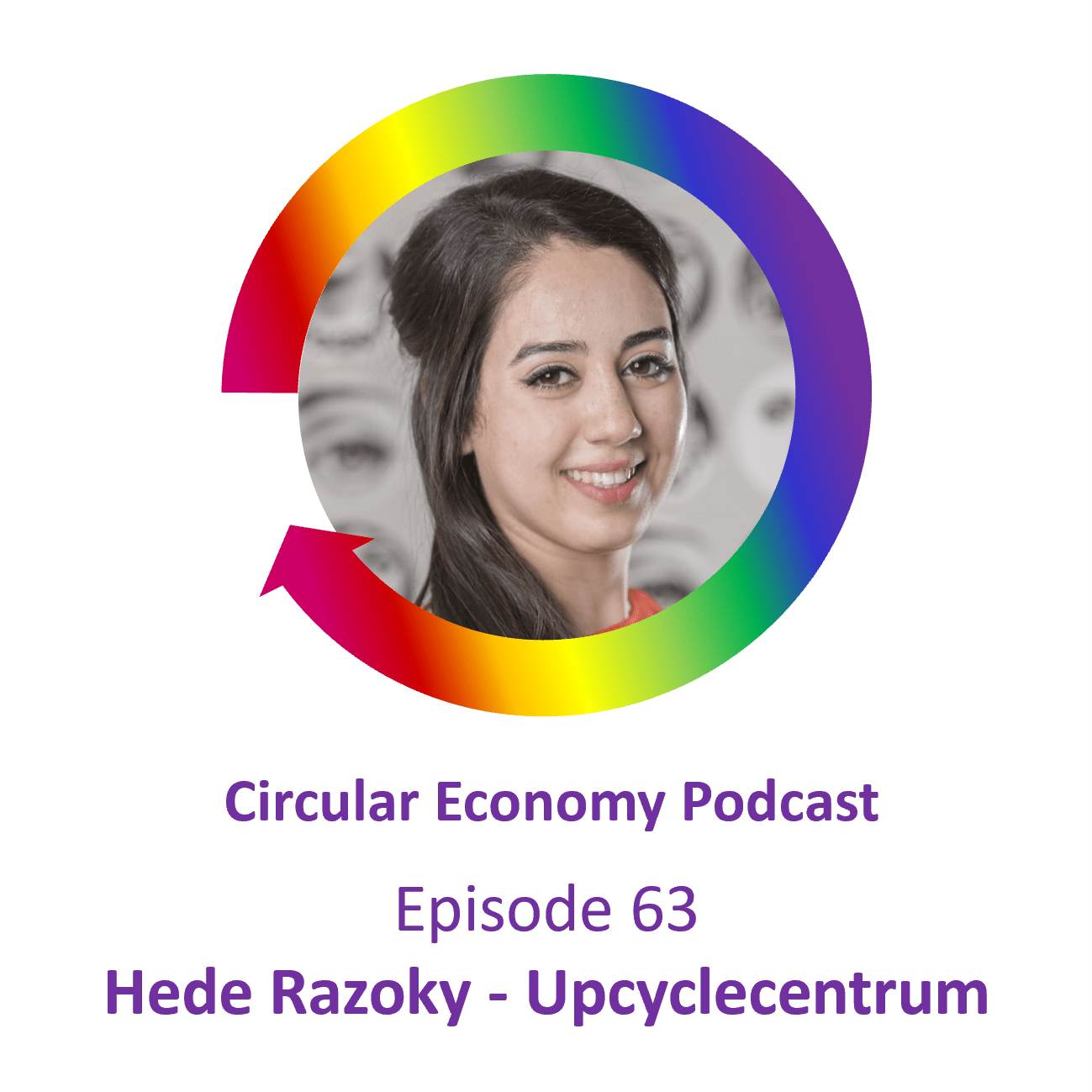Podcast: Play in new window | Download
Episode 75 Helena Norberg-Hodge – the future is local
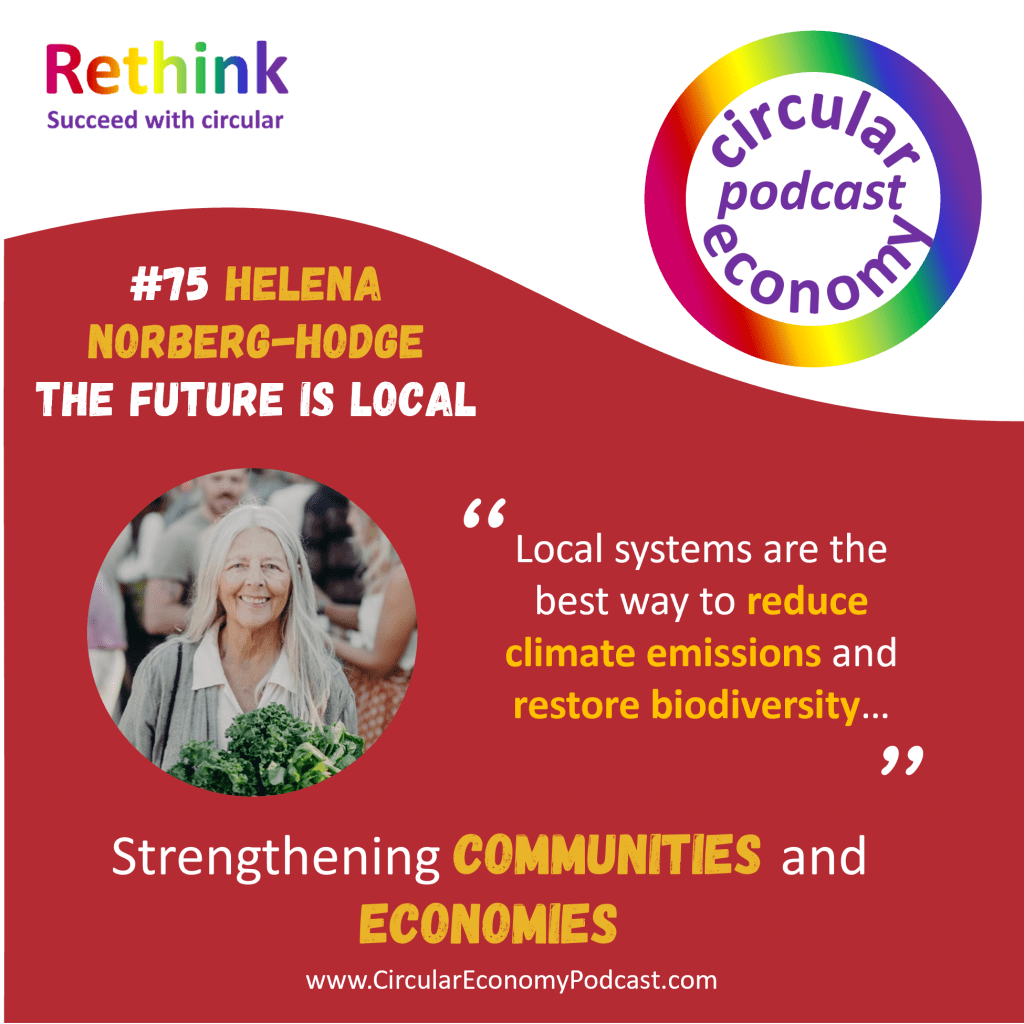
Catherine Weetman talks to Helena Norberg-Hodge, a pioneer of the new economy movement and recipient of Right Livelihood Award (aka the “Alternative Nobel Prize”), the Arthur Morgan Award and the Goi Peace Prize for contributing to “the revitalization of cultural and biological diversity, and the strengthening of local communities and economies worldwide.”
Helena Norberg-Hodge is also an author, and her most recent book is Local is Our Future. This book connects the dots between our social, economic, ecological and spiritual crises, revealing how a systemic shift from global to local can address all of these seemingly disparate problems at the same time.
Helena is also the author of the inspirational classic Ancient Futures, and producer of the award-winning documentary The Economics of Happiness.
Helena explains why local, small-scale, ‘traditional’ farming is better for farmers, for animal and human health, and for our planet, and how it helps strengthen local communities.
We talk about why local food is one of the simple solutions to our interconnected, systemic problems, and why connection with soil, with nature, with the process of growing food, is essential for our health and wellbeing.
Helena highlights how the centralised, highly integrated, top-down global food economy, which is subsidised by our governments through subsidies for research and development at universities to infrastructure, and through imposition of regulations at local and national levels.
Helena explains why we need to be doing everything we can to support local food systems worldwide, with shorter distances and supporting smaller diversified farms. The agricultural biodiversity also helps increase wild biodiversity. Local food reduces the plastic, it reduces the emissions, it reduces the need for refrigeration. We’re talking about massive, multiple benefits.
Podcast host Catherine Weetman is a circular economy business advisor, workshop facilitator, speaker and writer. Her award-winning book: A Circular Economy Handbook: How to Build a More Resilient, Competitive and Sustainable Business includes lots of practical examples and tips on getting started. Catherine founded Rethink Global in 2013, to help businesses use circular, sustainable approaches to build a better business (and a better world).
Stay in touch for free insights and updates…
Read on for a summary of the podcast and links to the people, organisations and other resources we mention.
You can subscribe to the podcast series on iTunes, Google Podcasts, PlayerFM, Spotify, TuneIn, or search for “circular economy” in your favourite podcast app. Stay in touch to get free insights and updates, direct to your inbox…
Don’t forget, you can use our interactive, searchable podcast index to find episodes by sector, by region or by circular strategy. Plus, there is now a regular Circular Economy Podcast newsletter, so you get the latest episode show notes, links and transcript delivered to your inbox on Sunday morning, each fortnight. The newsletter includes a link to the episode page on our website, with an audio player. You can subscribe by clicking this link to update your preferences.
Links we mention in the episode:
- A Circular Economy Handbook: How to Build a More Resilient, Competitive and Sustainable Business – buy from any good bookseller, or direct from the publisher Kogan Page, which ships worldwide (free shipping to UK and US) and you can use discount code CIRCL20 to get 20% off. It’s available in paperback, ebook and Kindle. If you buy it from online sources, make sure you choose the new edition with an orange cover!
- Sign up to get the podcast player and shownotes for each new episode emailed to your inbox
- Local Futures website https://www.localfutures.org/
- 3-min film Local Food Can Save The World, contrasting the global food system with localised food systems: https://youtu.be/MpNcSxfuecU
- Local is our Future book, by Helena https://www.localfutures.org/publications/local-is-our-future-book-helena-norberg-hodge/
- https://www.facebook.com/LocalFutures.TheEconomicsofHappiness
- https://www.instagram.com/localfutures_/
- https://twitter.com/localfutures_
- https://www.youtube.com/user/ISECeconofhappiness
- https://vimeo.com/theeconomicsofhappiness
- Totally Locally movement https://totallylocally.org/
- WaterBear streaming platform for environmentally related content https://www.waterbear.com/
- Awakened Sustainability (Catherine talked about the Great Awakening) by Raz Godelnik https://razgo.medium.com/will-this-be-the-sustainability-trend-that-will-define-2022-39c891833872
- Kerryn Higgs (author of The Collision Course) – an article about marketing by Kerryn https://thereader.mitpress.mit.edu/a-brief-history-of-consumer-culture/ and a review of her book by Herman Daly https://steadystate.org/book-review-collision-course-endless-growth-on-a-finite-planet/, and another article based on the book (from 2021) https://www.bbc.com/future/article/20210120-how-the-world-became-consumerist
About Helena Norberg-Hodge
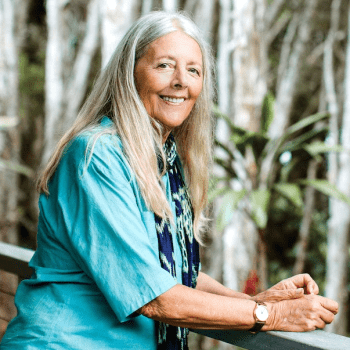 HELENA NORBERG-HODGE is a pioneer of the new economy movement and recipient of the Alternative Nobel prize, the Arthur Morgan Award and the Goi Peace Prize for contributing to “the revitalization of cultural and biological diversity, and the strengthening of local communities and economies worldwide.” She is author of the inspirational classic Ancient Futures, and Local is Our Future (2019), and producer of the award-winning documentary The Economics of Happiness.
HELENA NORBERG-HODGE is a pioneer of the new economy movement and recipient of the Alternative Nobel prize, the Arthur Morgan Award and the Goi Peace Prize for contributing to “the revitalization of cultural and biological diversity, and the strengthening of local communities and economies worldwide.” She is author of the inspirational classic Ancient Futures, and Local is Our Future (2019), and producer of the award-winning documentary The Economics of Happiness.
Helena is the founder and director of Local Futures and The International Alliance for Localisation, and a founding member of the International Commission on the Future of Food and Agriculture, the International Forum on Globalization and the Global Ecovillage Network.
Interview Transcript
Provided by AI
Catherine Weetman
So, Helena, welcome to the Circular Economy Podcast. And perhaps I could start by asking you to give us an overview of what local futures is all about.
Helena Norberg-Hodge
Well, Local Futures is all about a very, very big area we are so big picture that we deal with almost everything in the world. And it’s because I ended up in this remote part of the world called Ladakh, in the mid 70s, and also in Bhutan. And both of these were areas that had not been affected by the global economy, neither colonised nor developed, and my eyes were open to the impact of the global economic system. And it led within a few years to my conviction that we need to strengthen with local economies worldwide. So for more than 40 years, I and my organisation have been focused on that. And we’ve been focused on doing that. Around the world on every continent, we’re tiny organisation, but we’re, we have impact and contacts and networks on every continent. And in doing the work of strengthening local economies, we are also strengthening cultural self respect, the regeneration of biodiversity, more localised food systems, and also community energy schemes, a whole range of activities that are needed to strengthen local economies. And we also deal, you know, with a lot of you who are primarily focused on critiquing the expansion of the global economy and looking at its impact on human wellbeing, on democracy, and of course, on climate on the planet. So we we cover a very, very broad area in terms of the topic, and we work globally. And one thing we did a couple of years ago was to launch Word localization day. And we’re collaborating with hundreds of groups around the world. And we’ve recently launched a localization action guide, that hopefully can be helpful for people who are interested in this type of activity.
Catherine Weetman
Well, we can certainly put a link to that in the show notes. And I was just making a note, I can’t remember if I mentioned this, when we spoke ahead of the podcast, but a group in the UK called Totally Locally, that works with local towns to help help them
Helena Norberg-Hodge
Absolutely – we’ve been in touch with them and collaborated with them
Catherine Weetman
Great stuff. And so one of the things that you’re particularly exercised about is, is what’s wrong with our food system and the way it’s developing, you know, the global north model that’s being exported, if you like elsewhere, and kind of a guest lots of issues around food. Could you unpack that a little bit for us?
Helena Norberg-Hodge
I would love to. I would also urge people to look at our very short little video about three minutes, where we contrast the global food economy with local food economies plural.
Helena Norberg-Hodge
We are showing that in this global food economy, which is a highly integrated, centralised, top down corporate system, unfortunately, supported by our governments, subsidies for everything from research and development at universities to infrastructure, also to the imposition of regulations at the local and even national level. While global businesses, global corporations are being deregulated through free trade treaties. We have a system where our governments are systematically supporting the separation of between us and the source of our food, absolutely, systemically and systematically. We’re getting food from further and further away and food is being imported and exported the same product, beef in, beef out milk and milk out. Water in water out just recently 20 tonnes of bottled water to Australia from the UK, and about 20 tonnes of bottled water from Australia to the UK. It’s mad but it’s logical, according to the way that GDP is measured, and the way that governments are working added to the notion that more global trade is the way to increase GDP. In the meanwhile, at the local level from around the world, you know, in every continent there is a resurgence there is a constant flowering of initiatives trying to re establish healthier food systems where we shorten the distance from plant to table. And we people in the West are also waking up to the need to support so called peasant farmers or smallholder farmers in the so called third world or in the so called undeveloped parties, where hundreds of millions of farmers are struggling to raise awareness about the fact that these trade treaties are destroying them. And that these subsidies for the global infrastructure for global trade means that important food costs less than local food. It’s nothing to do with efficiencies at scale, nothing to do with supply and demand. It’s to do with top down control. And global food economy is the biggest contributor to climate change, to mountains of plastic to destroying the life in the soil, to bringing in junk food that is destroying the biome in our gut, along with destroying the soil. It’s it’s it’s a thoroughly destructive system. And it’s now escalating because corporations as blind organisms, it’s not really so much about bad people with people, it’s about bad policies and blindness. So in the meanwhile, at the local level, more localised systems are the best way to reduce climate emissions, the best way to restore biodiversity. And most importantly, if you take any two bits of land, and one, you do diversity, ideally as diverse as possible, ideally, including animals, maybe it will be ducks, eating the weeds in any rice paddy, maybe it will be just to go eating waste that human being planted that producing fertiliser, and milk and all kinds of other valuable benefits that increase the productivity. So diversity on one piece of land monoculture on the other, you will always be able to produce more if you go for diversify production. word that’s very popular these days is agro ecology. In other words, it’s it’s ecological. It’s adapted to local ecosystems. From my point of view, the more important language we need to be focusing on is that we need to be doing everything we can to support local food systems worldwide. They need to be wedded to shorter distances and to supporting smaller diversified farms. The biodiversity on the farm, the agricultural biodiversity also helps increase wild biodiversity. It reduces the plastic it reduces the emissions, it reduces the need for refrigeration. We’re talking about massive, multiple benefits. Another huge benefit that we see, particularly in the West, is that as people start connecting across food across soil, you start seeing a healing among depressed people, prisoners, juvenile delinquents, because we’re in touch with one of the most fundamental, productive, meaningful activities that we spend most of our time engaged with, in our entire evolution.
Helena Norberg-Hodge
Cut off from the food, cut off on the soil, cut off in the land, doing meaningless work where we don’t even see the end result of what we do. That’s unnatural. It’s been a very short blip in our evolutionary development. We can see around the world the healing that happens around community gardens, local farmers markets, Community Supported Agriculture, permaculture initiatives, slow food initiatives, the healing benefits on people as well as ecosystems is so inspiring. Well, one final say on the very long winded. But a final thing I want to say is that for me, the most inspiring thing, most inspiring movement I know of is the young people who are returning to farming. At that level with that diversify, localised Community Supported Agriculture, they’re so wonderful, really inspiring movement of young people really seeing a future and engaging in something that is fairly healthy and meaningful.
Catherine Weetman
Yes, and I think locally, I’m seeing some some examples of that. I live in the, in the uplands of the of the UK. And yes, so it’s, it’s, I guess, I’m still seeing a bit of a split, though, in terms of what the younger farmers are looking at some of them are still following the industrial agriculture model. And going, you know, bigger and more machinery and more intensification, but others are definitely moving towards a much more regenerative, mixed diverse farming and realising that less can be more, you know, less less animals grazing means less inputs means less work means less housing, and all the rest of it, but certainly not all of them. And I guess, you know, that brings me on to why mixed farming is is misunderstood in many circles, possibly, because some of the propaganda that comes out from Big Ag and the seed companies and fertiliser companies and so on. But there are, you know, people people object to mix farming, because of, you know, they use the production of methane, methane as a, as a barrier that veganism is is better. You know, there are lots of people arguing that we could just go completely plant based. And that would be fine. What, what would you say to those arguments?
Helena Norberg-Hodge
Well, first of all, I’m very sympathetic to people who don’t want to kill animals and who are appalled by the conditions in these animal factories, they are absolutely horrific. And, tragically, we do not hear about the voices that are trying to get us to distinguish between these hideous animal factories, cruel to the animals, hideous structure to the land of very bad for our health. And the diversified farming that was part of traditional agriculture for generations, for 1000s of years, actually, in almost all traditional systems. In every indigenous culture, people ate animal products. And there are quite a lot of, there’s quite a lot of evidence that those that particularly animal fat is actually very good for health. There’s also records of big corporations using advertising and persuading doctors to promote vegetable fat instead of animal fat, in order to be able to sell trans fats as healthier than animal fat. So it goes back quite a long time, that big business realise that if they heated up fat, they could keep it on the shelf much longer. And they started marketing this pure white Crispo. You know, probably like 40 years ago, or so much healthier than animal fat, this type of corporate propaganda basically, again, we have to remember it’s not individual people, we’re talking about entire institutions that are in many cases more powerful and what they’re wealthier than nation states were not harmless corporations with all kinds of specialists, very narrowly focus and many of the scientists that would be involved in creating the changes for genetically modifying food and, and you know, thinking genetically modified food is better for our health, or creating, you know, the trans fats so that food can be stored on the shelf. They were led to believe that this was in the best interest of people and there was almost no research on the health impacts. So we talking about a lot of blindness here, but I said, an end result has been disasters. And right now, from our point of view, spend a lot of money promoting a plant based diet and veganism because in this global food system that is so based on corporations gaining control, and ensuring that smaller businesses, smaller farmers, smaller towns even can’t compete with their wealth creation, which is linked to driving most farmers off the land. If this continues, we will be in a world where people will have been driven into a AI driven cities. And we will be surrounding perhaps with a little bit of rewilding, and then the farming will be done primarily by robots. Now, the men and the institutions that are pushing this, first of all, its zone of machine like the pushing in this direction, there is a link between the growth of mega cities like Beijing with now. What is it about 60 million people, there are 18 satellite towns with about 2 million. So the total conglomeration is about 60 million. Now this monstrous growth is entirely a consequence of this corporate system, which is driving people off the land into doing meaningless factory labour for a high tech industry, where creating video games and consumer goods that are crumbling, not not only useless, but harmful. The whole gaming industry, and it’s highly addictive, it’s linked to serious health problems and mental problems. Anyway,
Catherine Weetman
I think I think you’re absolutely right. And the kind of, you know, addiction seems to be one of the tactics that more and more companies are using, whether it’s addiction to types of food, through that magic ratio of salt, sugar, fat, that gives you a great big dopamine hit. And your subconscious then wants more, or addiction to you know, gaming, gambling, fashion, all that kind of stuff, it seems, seems to be a tactic used by more and more big businesses. And what you were saying about the city’s brought to mind, something in a book I’m reading, excuse me by Kerryn Higgs is from back from 2008, called Collision Course. And in that she refers quite a few times to to what Karl Marx first talked about what he called ‘metabolic rift’, which was the rift between the rural areas where food was being grown, and, you know, animal manure, and so on, was being created. And all those nutrients from the manure, were kind of, you know, being missed, but also the, the nutrients were going into the cities from, from the food. And, you know, when when people ate the food, and then produced their own waste, those nutrients were just being washed away into sewage systems and then into the sea and weren’t being returned to the land. So there was this kind of, you know, rift between the metabolism of the rural areas and the cities. And so, you know, even back then, even with somebody who wasn’t a scientist, and I don’t think he he didn’t make a big thing of that as a as a kind of sustainability issue. He just kind of noted it. And also what what what came to mind was, you know, the film Soylent Green. And I think there’s even there’s even one of these plant based alternative foods called Soylent, and it’s, it’s, you know, I just can’t I can’t understand why they would call it that. But yeah, maybe I’ll put a link to that in the show notes. And so,
Helena Norberg-Hodge
very interesting about Karl Marx. I didn’t know that but but certainly the growth of the city. You know, again, in this modern era, started, of course, with Dickensian London and the enclosure so people will push up for land to become cheap labour. And in the so called third world there will be pushed away from diversified production for their own needs to go into huge monocultures to produce for the traders. You know, the cotton, the tea, the coffee,
Catherine Weetman
and the cash, cash food crops as well. And, and that’s one of the myths that I think comes up you know, people, people think that if they buy out of season, fruits and vegetables, you know, the Kenyan green beans and so on. They think they’re doing a good thing to help the local economy. Excellent, actually. That’s That’s another myth, isn’t it? Really?
Helena Norberg-Hodge
Exactly, we actually address that in our film, the Economics of Happiness, where we try to show the bigger picture about the benefits of strengthening local economies and the problem with the global economy. And yes, there’s been a lot of propaganda, telling us that we’re helping the Third World, so called by buying their products, including their food. And that, you know, unfortunately, even many of the people in the whole fair trade movement, don’t look at the bigger picture and don’t realise that the best thing I could do is to help people strengthen their own local economies, and that we need to do the same thing back home. Yeah, and of course, everything can’t be localised. But when it comes to food, which is something every person needs every day, we just can’t stress enough how important it is to create genuine food security, to have diversified production of food in the region really as close as possible. And if we could just encourage a shift in policy, almost overnight, we would see the huge benefits of doing that. But in the meanwhile, what we try to do in local futures is to encourage people to get on with creating the local food systems wherever they can. And you know, you were saying before how some of the young people are still going for the conventional model. Got often going into debt to buy machines that’s been part of the home and following the conventional economic dictates, and you can’t blame people and fat for me, all of this madness, we’re seeing it really is a systemic craziness that has been escalating for a long time. And I think the really important thing is that we will take the moment to step back and look at the bigger picture. And then try to find ways to reach out locally, to start creating the solutions that are going to be beneficial right now, that are also absolutely essential for the long term future. And a foundation in how to local food systems is the highest priority. And I can also just say that once you are talking about building healthy local food system, you’re talking about cleaning the water, you’re talking about the diversity that restores the soil that this was, you know, restores the health of the soil, and is producing genuinely healthy food, because even the term organic has been co opted, you know, so that large scale, global organics are not what we think they are.
Catherine Weetman
Yeah, well, I’m a member of the Real Bread campaign. And they’re campaigning against the with the UK Parliament, against what they call sour-faux, which is supermarket selling bread that is labelled a sourdough. But, but it’s not, you know, it might have a little bit of sourdough culture in there, but it’s not sourdough bread. So from a practical point of view, yeah, sorry. Helen.
Helena Norberg-Hodge
No, go ahead.
Catherine Weetman
From a practical point of view, what can people do to help this flourish locally? You know, whether you live in a in a city or a rural area? What what could you do tomorrow? To help help start?
Helena Norberg-Hodge
I would say the first thing you could do tomorrow is to look in your area, whether you’re in the country of the city, for a Local Food Initiative, see, you know, you have a local farmers market, go there, do as much of the shopping as possible there. But it’s about more than that. I believe, if people understood why things are going so wrong in the world, what lies behind not just climate change, not just even the pandemic we’re facing, but even epidemics of depression, very frightening increase in cancer, really an epidemic or cancer, epidemics of depression. I mean, we’re, we’re facing multiple crisis, we can offer a whole wealth of information about how getting involved and rebuilding local food economies can be the very best, most systemic thing you can do. So I want to urge people to do that not just as a shopper, but also as an activist. If you have any extra time, if at any extra money, see what you can do to help strengthen this movement. You can come to our website, local futures.org to get ideas. We have a series called Planet Local, we might actually be highlighting an initiative near you. If you have questions. We’re also happy to help Because yeah, like I say, it makes me very sad that there are so many people who are spending a lot of time dealing with single issues, all of which are valid, you know, whether it’s about concern about gender and, you know, the rights of gay people, whether it’s the concern about the depression, I just mentioned about poverty, about democracy about climate change, in particular, if they could understand that we are, we must now shift to a systemic view and systemic solutions that deal with multiple problems similar taneous Lee, otherwise, we’re just not going to get where we want to. And we see, in fact, I have studied the way in which people in the corporations, personal friends of mine are some of them still friends have been part of getting involved in the environmental movements and social movements with genuine concern. But their influence and their funding and their influence on government has taken us down a path of narrow specialised single issue perspectives. And one of them we talked about earlier, veganism, that are actually leading to a splintering to and separation, they are not focused on genuine healing systemic solutions, that is a way forward, that really does get simultaneously to healing ecosystems and people. So first step would be to maybe inform yourself a little bit more about that website, outside local theatres.org is a very good way to do that. And then look in your area, join a group change it to a we don’t have to be a big group, you don’t have to go out into public meetings, it could be one or two colleagues or friends. But it’s so much better. Once you start saying what can we do? Rather than what can I do?
Catherine Weetman
Yeah, and I guess, I guess, even with, even with your family, you can have those conversations, can’t you about and, and, you know, I think thinking not just about local but thinking about seasonal food as well, because the supplier might be local at our farmers market. You know, there’s there’s an independent greengrocer. But quite a lot of what they sell is is important. So it’s thinking about, you know, what’s, what’s seasonal, because then it’s much more likely to be grown locally, and moving away from those, you know, green beans and raspberries and strawberries all year round. And the thing that always drives me mad, which is you know, but people demand that Well, I was at Tesco, when that was first introduced and people weren’t demanding it. It was Tescos way of resolving some of the supply chain forecasting issues of you know, how’d you how’d you get Easter, right when it could be chucking it down or it could be really sunny? Well, the easiest ways to make sure people demand the same food, whatever the weather conditions
Helena Norberg-Hodge
But even our governments are subsidising the fossil fuels and the interest rates were excellent making transport artificially cheap. That also you know, you said also seasonal, and I would just say another way to put that is genuinely local. Looking from the seed to the plate, yes, yes, absolutely. It’s not just about a local shop. You know, Sainsbury’s also mark as itself as your local corner. Yes.
Catherine Weetman
And those those pictures of the fake farm names and things that they put on their meat? Yes. So are they? Yeah, I’m having to. I’ve not shopped. Well, me and my husband have not shopped at supermarkets for over 10 years. But we were talking earlier about me doing man and my sister’s doing a bit of caring for my parents. And so my parents have an online supermarket deliveries. So I’m being sort of re educated in in the ways of supermarkets. So Helena thinking back on on, you know, you’ve got you know, an awful lot of experience in all of this and in in creating movements for change. Which of your values do you think helps us move towards a better world and why?
Helena Norberg-Hodge
And values is the I don’t think it is so much about values as people are saying I think it’s a it’s so much more about Big Picture awareness. I believe that most people today, particularly in the Western world, really value a better relationship with others, more meaningful work, a better relationship with the environment, most people would prefer food without chemicals at a reasonable price. They would love to see local farmers, local shops thriving, but they’re not being held to understand why that’s being undermined. And how, what’s going on? What is it that’s hitting us? Why are we facing one crisis after another? From my point of view, this is what’s really lacking is that big picture. And I feel, you know, very, very sad about the fact that not only there’s this big corporate system, often with well intentioned leadership, get involved in shaping the direction of our governments shaping the shape of the world, basically. And not only are they undermining ecosystems, creating climate change, toxic pollution increases in cancer, but they are blaming you, they are actively promoting a view, which brings it all back to the individual making, particularly in the West, but but elsewhere to the individual blame themselves. The dominant narrative is saying, human beings, you know, you you know, you’ve you’ve been told about climate change, you’ve been told about all this, and why aren’t you changing, you’re just carrying on the same old way, you’re obviously impervious to information and you don’t care, you’re selfish, you’re greedy, you just want more and more? Well, just like you were saying, people didn’t actually ask to have green beans in the winter, people, I’ve never seen a single demonstration. Before having a new supermarket. I have seen countless demonstrations against having supermarkets. But the narrative that keeps influencing us, has us forgetting the bigger picture. And we end up trapped in this very depressing situation, where on top of everything else, we end up blaming ourselves. And we end up feeling oh, my goodness, I should be doing more for recycling. And I, you know, and I should be spending more time with my mother and I should be doing this and doing that. We’re not even looking at how we’re trapped in a system that has is running faster and faster just to keep a roof over our head. And at the same time, blaming ourselves for this rat race is just really the most important thing we can do to step back and look at the bigger picture.
Catherine Weetman
Yes, I think you’re so right. And that reminds me of an article. Somebody shared with me last week, I can’t remember the name of the author, but I’ll put a link in the show notes. And I’ll send it to you afterwards. Helena, about the Great Awakening that he thinks is happening now. You know, it’s kind of it’s the great resignation that you might have heard about with people deciding they’re not going to work in that that job anymore. You know, COVID, awaken things in people. And so they’re saying that’s just part of a much bigger picture, which is this great awakening realise how, you know, realising how altered our lives have become over the last few decades and how that’s moving further and further away from what gives us meaning and, you know, true. You know, happiness and connection. Yeah, so yeah. So I’ll, I’ll send you that link. And so is there somebody you would recommend as a future guest for the programme to perhaps talk about food system and circular economy or or some some other thing you think could be interesting for our audience?
Helena Norberg-Hodge
Well, yes, I would recommend well Colin Tudge. I mean, this, you know, Colin organised Oxford Real Farming Conference. Yeah. And Jyoti Fernandes from the Smallholders Alliance. Nelson Mudzingwa from a Smallholders Alliance in Zimbabwe. Quite a few I could recommend. But I’m trying to think I do feel there aren’t enough people talking about that bigger picture that that says that it’s this global economic system, dominated by global traders, that that’s what we have to look at more clearly to see why things have gone so wrong, and how that’s been linked to urbanisation and how that in turn has only happened because we’ve destroyed the farming communities and the smallest cities that were linked to regionally to the productive land use that destruction of smaller towns, smaller cities, small everything. In the localization movement, we’re talking about the way that governments use taxes, subsidies and regulations to benefit global corporate monopolies, while punishing and taxing and over regulating every other business and even national scale businesses are being punished, taxed and regulated, while the global monopolies run free. That’s the main reason behind most of our problems.
Catherine Weetman
Yes, I agree. And it’s an it’s it’s shocking how unseen that is. So I think it sounds as if there’s lots of lots of resources on your websites, the local futures websites, that would help people start to, you know, get it get into that and start to think about what it means for them and what they can do. So Hellena, how can people find out more and get in touch with you and local futures project?
Well, the website is local futures.org. I’m told it looks a bit old fashioned. So we are going to be updating that what it is, is full of resources, because we’ve been at this for 40 years, working in the industrialised as well as non industrialised parts of the work. So we have a lot of experience of the love of materials, we did a film called The Economics of happiness, which tells this bigger picture story in about an hour, I really hope people will look at that. And we’ve had regional conferences around the world by that name, fabulous speakers from around the world, all recorded and on our website. And then as of two years ago, we launched world localization day, we have amazing voices and programmes from all over the world, making visible and celebrating the worldwide globalisation movement. We managed also to get support from Noam Chomsky, whom I studied with and the Dalai Lama, whom I’ve had many meetings with in the past. And people like Russell Brand, Jane Goodall, Brian Eno, Gabor Maté, and some other quite well known people try to help with those voices to make this more visible, because it is virtually impossible to get out in the media.
Catherine Weetman
Yes, yes. And I think I think you’re right, there’s a there’s a wide range of, of people, you know, deep thinkers getting much more interested in activated about this. And I think you’re right, that we can all do more to start our own tiny, local rebellions and, you know, start to push back against the system. And the way, the way I’ve been thinking about it over the last couple of months, is that all of us are citizens, were the ones who could create the market for a better system. And it’s really up to us, it’s only it’s only our unrest, with the current situation that is going to push politicians into doing something different. And that’s going to support the small businesses, the local businesses, that the ones that put the money into the back into the local community, instead of you know, offshoring it and paying out fat bonuses, were the ones who’ve got to, to make this happen, you know, without all of us doing something, it just isn’t going to happen. So Hellena that was really interesting. Some really insightful, you know, thoughts and, and uncovering some of the myths is useful. And I think it sounds as if there are some great videos on the website. So we can put specific links to those, and including the link to the film, the economics of happiness, which is now on my list to watch. So, Helena, thank you very much. And I look forward to seeing what’s going to happen in 2022. I’ll send you the article on the Great Awakening and hopefully, that that commentator is seeing a movement for change that we can we can all help to accelerate. So Helen, thank you very much.
Helena Norberg-Hodge
Well, thank you so much in apologies of monologuing too much. I have got so much experience I can go on for too long.
Catherine Weetman
I couldn’t possibly criticise anybody for that. Because, you know, though those of us who are, you know, passionate about about, you know, anything. There’s, there’s always more we can say to help. Help Help help tell people More about the problem and more about what they can do so so now, we could have talked for longer. I’m really interested in this. And there’s so much more that we could unpack.
Helena Norberg-Hodge
Maybe another time so we should stay in touch.
Catherine Weetman
So yes, I’d love to. Thanks, Helena.
Helena Norberg-Hodge
Thank you. Bye bye
Want to find out more about the circular economy?
If you’d like to learn more about the circular economy and how it could help your business, why not listen to Episode 1, or read our guide: What is the Circular Economy?
To go deeper, you could buy Catherine’s book, A Circular Economy Handbook: How to Build a More Resilient, Competitive and Sustainable Business. This comprehensive guide uses a bottom-up, practical approach, and includes hundreds of real examples from around the world, to help you really ‘get’ the circular economy. Even better, you’ll be inspired with ideas to make your own business more competitive, resilient and sustainable.
Please let us know what you think of the podcast – and we’d love it if you could leave us a review on iTunes, or wherever you find your podcasts. Or send us an email…
Podcast music
Thanks to Belinda O’Hooley and Heidi Tidow, otherwise known as the brilliant, inventive and generous folk duo, O’Hooley & Tidow for allowing me to use the instrumentals from the live version of Summat’s Brewin’ as music for the podcast. You can find the whole track (inspired by the Copper Family song “Oh Good Ale”) on their album, also called Summat’s Brewin’. Or, follow them on Twitter.
